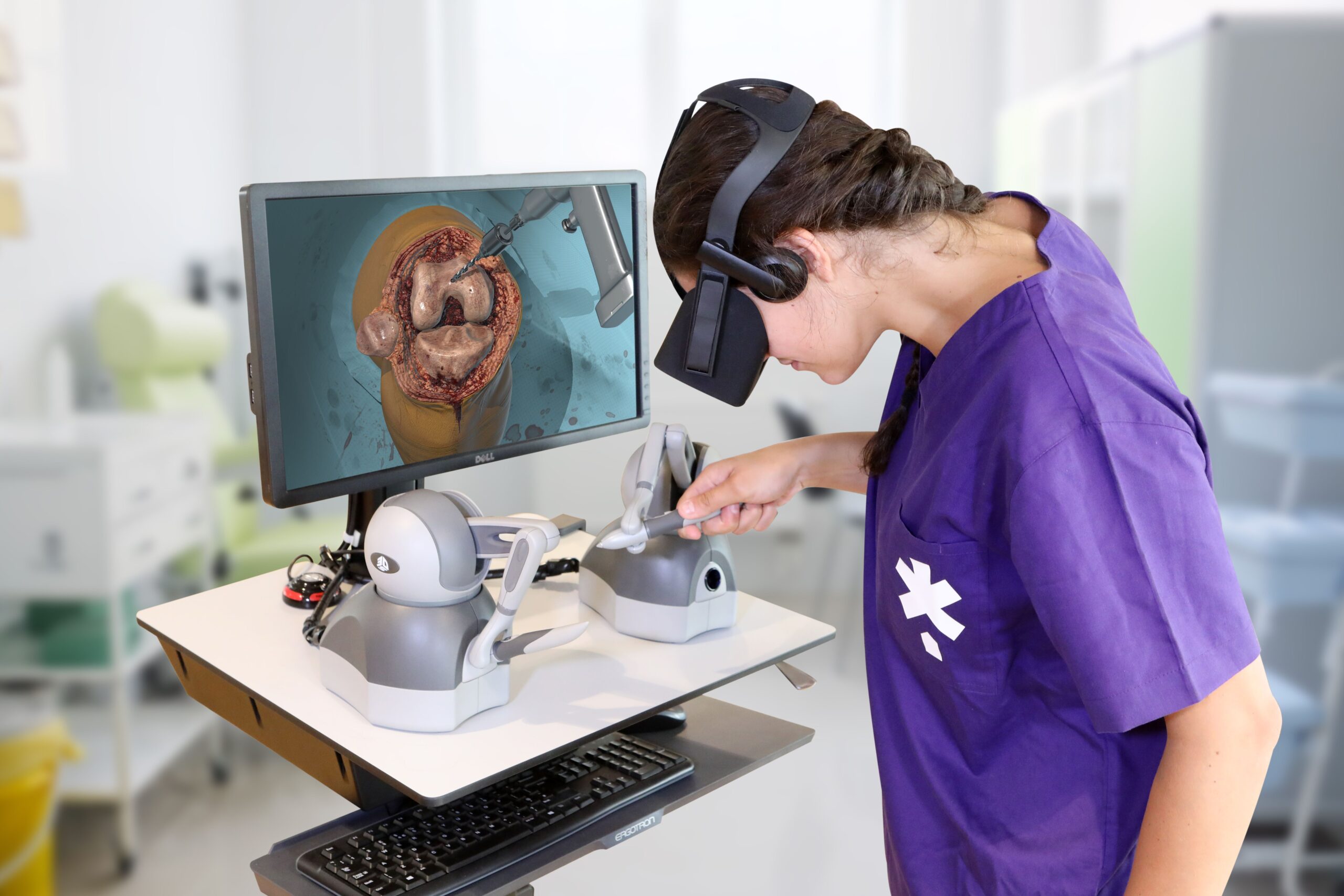
FundamentalVR, a startup that sells virtual reality and haptic software for medical simulation, announced Thursday it has closed a $20 million Series B funding round, bringing its total funding to more than $30 million.
The round was led by EQT Life Sciences, with participation from Downing Ventures, Tern Plc, and Sana Kliniken, the third largest teaching hospital
network in Germany.
Founded in 2015, FundamentalVR has offices in London and Boston. The startup’s mission is to help surgeons become “pre-human competent,” said co-founder and CEO Richard Vincent. This refers to surgeons’ ability to become proficient in a procedure before ever touching a patient.
FundamentalVR’s platform, called Fundamental Surgery, combines VR and haptics to realistically recreate the sights, sounds and sensations that surgeons experience during medical procedures. It is deployed in more than 30 countries, according to the company.
Surgery is a multisensory skill. Touch is crucial to enabling surgeons to learn and perform procedures; however not all haptics solutions are created equal, Vincent declared. FundamentalVR’s platform sets itself apart by using both cutaneous and kinesthetic haptics technology. Cutaneous haptics feedback deals with tactile sensations, while kinesthetic haptic feedback is more complex. It provides force sensations that can both stimulate mechanical stimuli, as well as stimuli having to do with an individual’s position and body movement. For example, when a surgeon is cutting into bone, the haptic feedback allows her to feel that friction. When she is near simulated tissue, she can feel a soft texture that mimics that of human tissue.
“While VR simulations with cutaneous feedback are competent in medical education and training to help acquire knowledge, the addition of full force haptics now allows for the acquisition of skills,” Vincent said. “Fundamental Surgery has the ability to provide both and does so in a software solution rather than a dedicated lab or machine.”

A Deep-dive Into Specialty Pharma
A specialty drug is a class of prescription medications used to treat complex, chronic or rare medical conditions. Although this classification was originally intended to define the treatment of rare, also termed “orphan” diseases, affecting fewer than 200,000 people in the US, more recently, specialty drugs have emerged as the cornerstone of treatment for chronic and complex diseases such as cancer, autoimmune conditions, diabetes, hepatitis C, and HIV/AIDS.
The company’s technology is hardware-agnostic, meaning it works with any laptop, VR headset or haptic equipment on the market. Vincent said customers like this feature because it makes the platform more affordable and scalable.
FundamentalVR sells its software to medical institutions, as well as medical device manufacturers and life science companies that are bringing new products to market. A few of these customers include Mayo Clinic, NYU Langone, UCLA Health, Teleflex, and Novartis. For example, Novartis created a haptic simulation for a sub-retinol injection, which helped the company bring a new gene therapy to market, Vincent said.
Though FundamentalVR has attracted a range of esteemed customers, there are still plenty of other companies in the medical VR field, including Medical Realities, Immersive Touch and Osso VR. Vincent said his company is most like Osso VR, though he doesn’t believe it has “a like-for-like competitor.”
Most competing technologies only have one focus, Vincent claimed. Some companies are focused on mixed realities without haptics, others provide cutaneous haptics, and others sell solutions within specific hardware. Vincent contends that FundamentalVR differentiates itself because it is specifically focused on the SaaS delivery of software that provides both cutaneous and kinesthetic haptics.
FundamentalVR will use its Series B funding to invest in the advancement of Fundamental Surgery. The startup has plans to expand the platform to support more medical disciplines, specialties and procedures, which currently include orthopedics, ophthalmology, urology and endovascular surgery. FundamentalVR is also continuing to build out its haptic and visual libraries to support new and more complex procedures and devices, as well as expand its activity in robotic surgical interfaces, patient specific-modeling, and genomic and regenerative gene therapy.
Photo source: FundamentalVR












